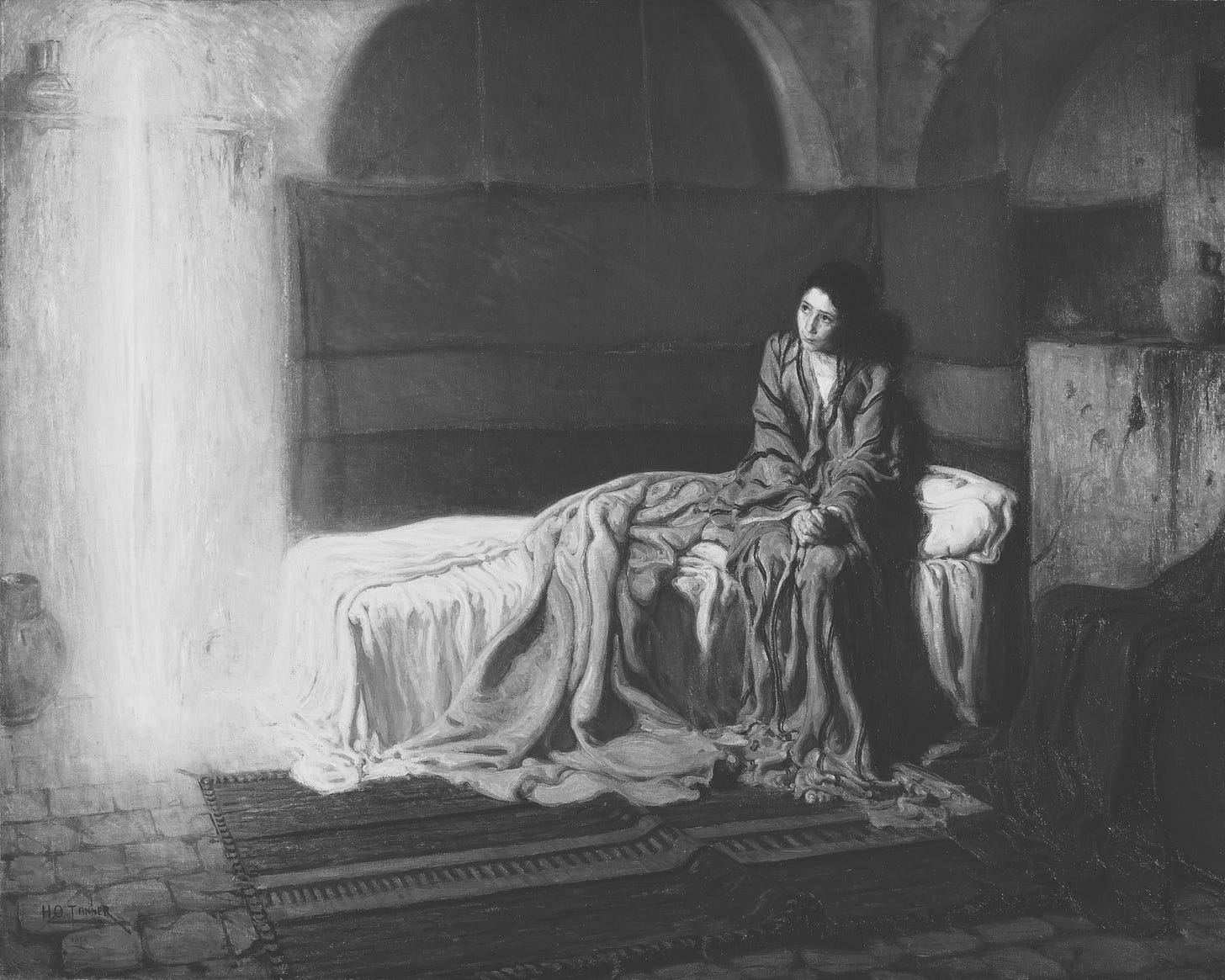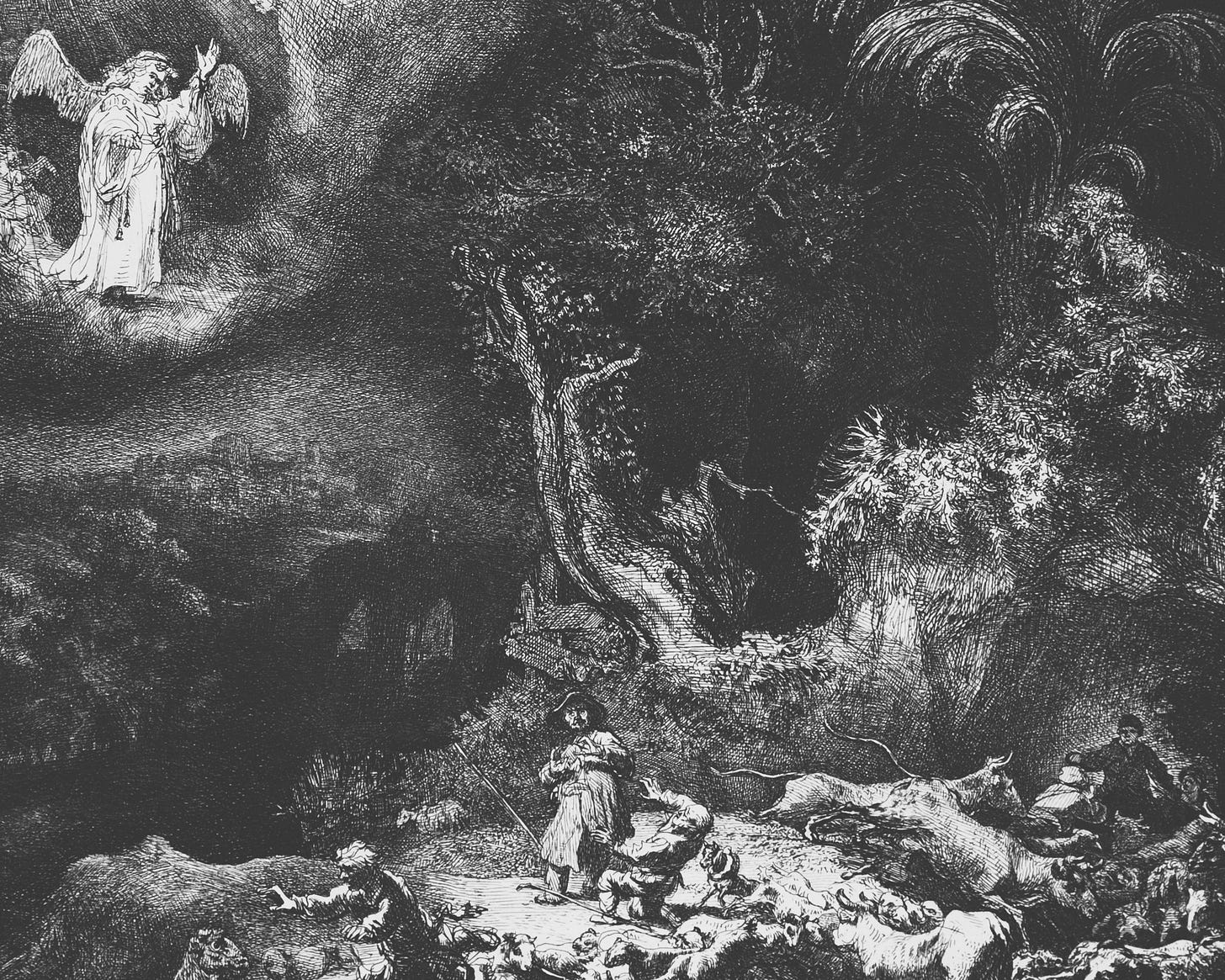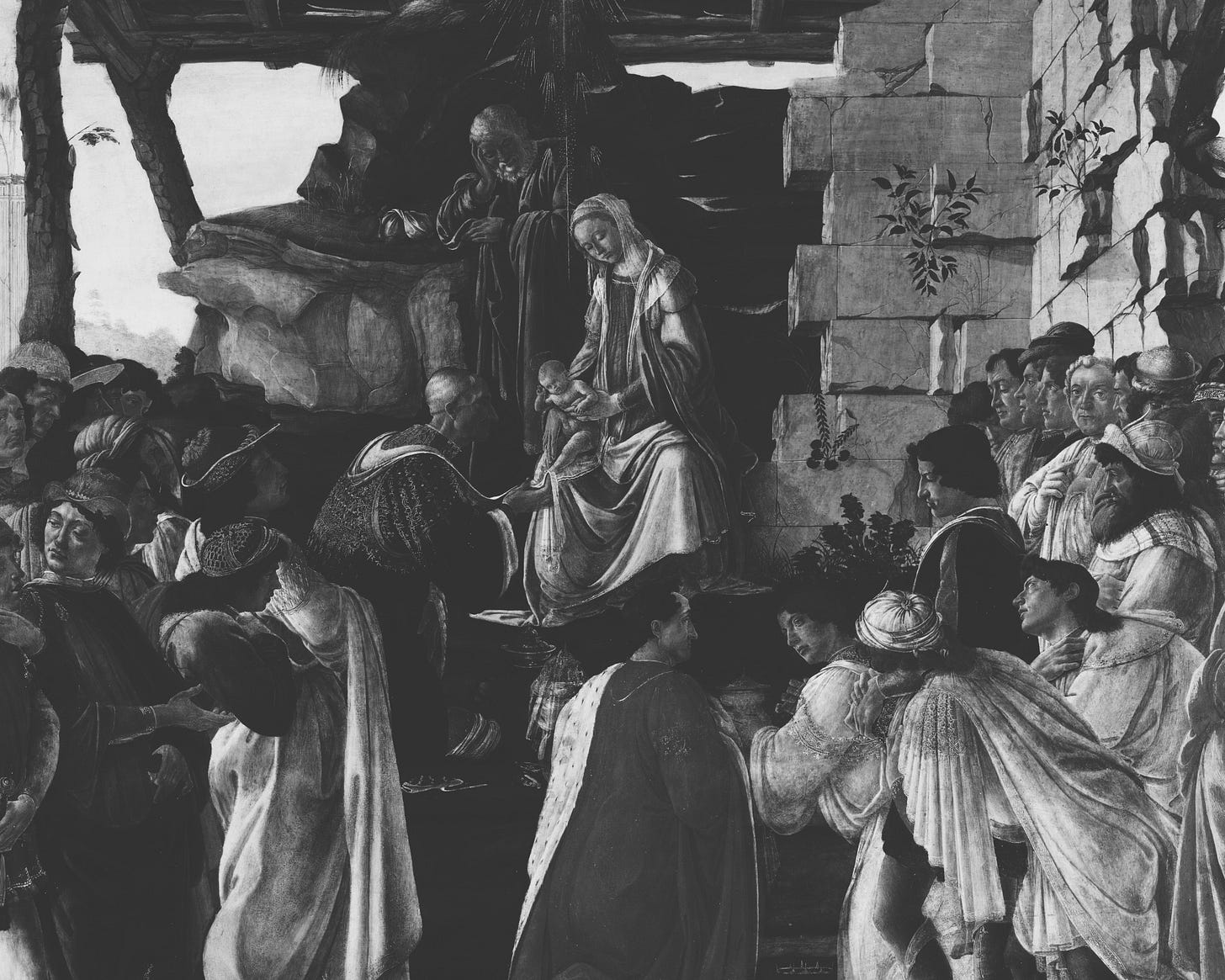Our daughter Harper entered the world in darkness. She heard familiar voices but she didn’t open her eyes to see unfamiliar faces for almost the first full day of life. Curt Thompson writes that, “We are all born into the world looking for someone looking for us.” I knew this intrinsically about my daughter long before I’d read anything about it. I know it about myself, and about you. This longing is in us. Amid the various debates about nature versus nurture, this is not in doubt. Thompson reminds us of the universal human need, “to be seen, heard, and felt by one whom we sense desires to see us, hear us, and feel what we feel.”
Being human means needing to see that we’re seen.
Being human means needing to hear that we’re heard.
Being human means needing to feel that we’re felt.
Being human means needing to be desired, wanted, and loved.
In this season, as lights and trees adorn our homes and nativity scenes adorn our streets, we are reminded of the Christ child who like us was born into the darkness of the world. But he did not enter as the rest of us did, for he did not ascend into life from nothingness. This child descended from muchness (which is probably the best way to understand concept of “glory”), down into our smallness, eschewing the magnitude of the cosmos in order that he might know our suffering and our pain, and bear it upon himself, and redraw the boundary lines between heaven and earth.
Athanasius of Alexandria once wrote that, “The Lord did not come to make a display. He came to heal and to teach suffering men. For one who wanted to make a display the thing would have been just to appear and dazzle the beholders. But for Him who came to heal and to teach the way was not merely to dwell here, but to put Himself at the disposal of those who needed Him.” In other words, the Christ child did not come to “dazzle” us, to be seen by us. He came to put himself at the disposal of those who need him. And we all need him, in a variety of ways. But mostly we need him to see us. And in the buildup to the birth, God the Father declares, through the various people he “sees” on the way to the Incarnation of his Son, that he does indeed see, hear, feel, desire, want, and love us.
God Sees the Unremarkable and Powerless
Mary is an unremarkable girl from an unremarkable town, likely from an unremarkable family. Reading between the lines, she’s been given to a man named Joseph in a marriage of convenience and stability, to ensure a husband who’d act as her benefactor. At the time, girls like Mary had little to no prospects of making a life for themselves on their own. She was powerless in a world ruled by the powerful. Self-agency was not a viable options for girls like her. Today, in a culture that values the autonomous self above almost all else, the obtrusion against the pursuit of our various hopes, dreams, and desires is considered violence against the individual. But such a life was unfathomable for Mary. There was no real path toward significant meaning or purpose for her life. She was to be wed to a humble stone mason, relegated to live an impoverished life for the rest of her days. Until an angel tells her that she will carry in her womb and her heart the Messiah. This is why she declares, “my soul glorifies the Lord and my spirit rejoices in God my Savior, for her has been mindful of the humble state of his servant” (Luke 1:26-28).
Maybe you feel unremarkable. You come from humble beginnings. No one beyond your small circle knows your name. You have no following. You’ve never gone viral. You feel powerless in a world ruled by the powerful. Self-agency feels elusive. You dare not hope, dream, or even desire, for fear of yet another disappointment. There seems to be no real path toward significant meaning or purpose. Your life feels relegated to convenience and stability at best. God sees, hears, feels, desires, wants, and loves you.
God Sees the Unnoticed and Neglected
In the first century, shepherding was a thankless job (as it typically is today). Shepherds were seen as those at the bottom of the social ladder and as such, they were often marginalized. The work itself was physically demanding and dangerous; these young men cared for the well being of these animals, often protecting them from dangerous predators that posed a threat not only to the sheep but to the shepherds themselves. Most often, shepherds were hired hands. They were risking their lives for flocks they did not own nor profit from. Shepherds were almost always underpaid, overworked, and overlooked. This would’ve created great tension amongst shepherds at the time because the sheep themselves were an important part of the local economy, providing wool, milk, and meat. Sheep were a critical to maintaining the economic lifeline of a community, including the system of temple sacrifices in Jerusalem. Yet the shepherds laboring and toiling to keep them safe went largely unnoticed and neglected.
Maybe you feel stuck in a thankless job, a thankless family, a thankless social circle, or some other thankless situation. Your CV doesn’t measure up to the more impressive people of society. You put yourself in physical, emotional, or mental harm’s way, day after day, caring for those no one else seems to have the time to care for. But no one is caring for you. You feel unnoticed and neglected. God sees, hears, feels, desires, wants, and loves you.
God Sees the Secular and Skeptical
There is debate about the Magi—who they might’ve been and might not have been. Some argue that they were Zoroastrian priests from Persia. Others believe they were Babylonian scholars/astrologers who’d had some level of exposure to the Hebrew Scriptures. Some believe they hailed from first century Arabia, where gold, frankincense, and myrrh were abundantly available. A few suggest they may have traveled from as far as first century India, sages who’d traveled far. What is not debated is that the Magi were not, traditionally-speaking, men who belonged to the “people of God.” Through the lens of first century Judaism they were unchosen, unwanted, and undesired outsiders. They were pagans. In the language of the modern church, we might call them “unbelievers,” “secular,” or, more hopefully, “spiritual but not religious” (although the Magi were in a sense more deeply ‘religious’ most at the time). Again, using modern language, these were not “Christians,” they were not “church people,” and they certainly were not the “God’s people.”
Maybe you feel too un-Christian, secular, and skeptical to darken the doors of a church this Christmas season, or in any season. You have doubt. You’re uncertain and unsure. You find deep belief difficult. You’ve done too much or had too much done to you to believe in the hope, peace, joy, and love that Christians claim is available to all. God sees, hears, feels, desires, wants, and loves you.
In his fantastic new book Thirsting, Strahan Coleman reminds us that, “We cannot make sense of the ache within us outside its origin in the God who longs even more than we do.” Maybe you’ve lived much of life mired in the confusion and pain of feeling unremarkable and powerless like Mary, unnoticed and neglected like the shepherds, or too secular and too skeptical like the Magi to experience the Incarnation in its majestic fullness. Maybe you ache for something you’re not sure can ever be yours. God sees the unremarkable and powerless, the unnoticed and neglected, the secular and the skeptical. God’s ache for them, and for you, is greater than the ache within. God longs for you more than you could possibly know.
God sees you. God hears you. God feels you.
God desires you. God wants you. God loves you.






